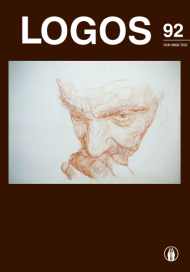Egzistencializmo motyvai Onutės Narbutaitės kūryboje. Opera „Kornetas“
Existentialism Motifs in Onute Narbutaite Creative Work. Opera „Cornet“
Author(s): Jūratė Landsbergytė-BecherSubject(s): Music, Recent History (1900 till today), German Literature, Existentialism
Published by: Visuomeninė organizacija »LOGOS«
Keywords: Narbutaite; R. M. Rilke; "Cornet"; day-dreams; existentialism; transcendental shifres;
Summary/Abstract: The work of Lithuanian composer Onute Narbutaite is very important for a Lithuanian a presence in the contemporary discourse of world culture. Her music is based on multicultural contexts, personality matters and personal life experience, connected with the history of the Lithuanian capital of Vilnius. Another source for her creativity is the early modernism of European culture in I half of XX century. There she expressed the signs of existential philosophy inspired by Reiner Maria Rilke's poetry, life and environment contexts. Narbutaite's creative work leads into the world of Rilke images: Vigilias, transcendental landscapes and day-dreams visions. The composer transforms Rilke's contexts in her own way to connect with the dream world and great culture of modern Europe. That expresses the concept of her newest work – multitude in multicultural means the opera „Cornet“ (2014) after R.M.Rilke („Die Weise von Liebe und Tod des Cornets Christoph Rilke“, 1906). Nevertheless that presents another research mystery for her interpreters. Narbutaite and Rilke are there on their mission to reconstruct past times.
Journal: LOGOS - A Journal of Religion, Philosophy, Comparative Cultural Studies and Art
- Issue Year: 2017
- Issue No: 92
- Page Range: 166-176
- Page Count: 11
- Language: Lithuanian

